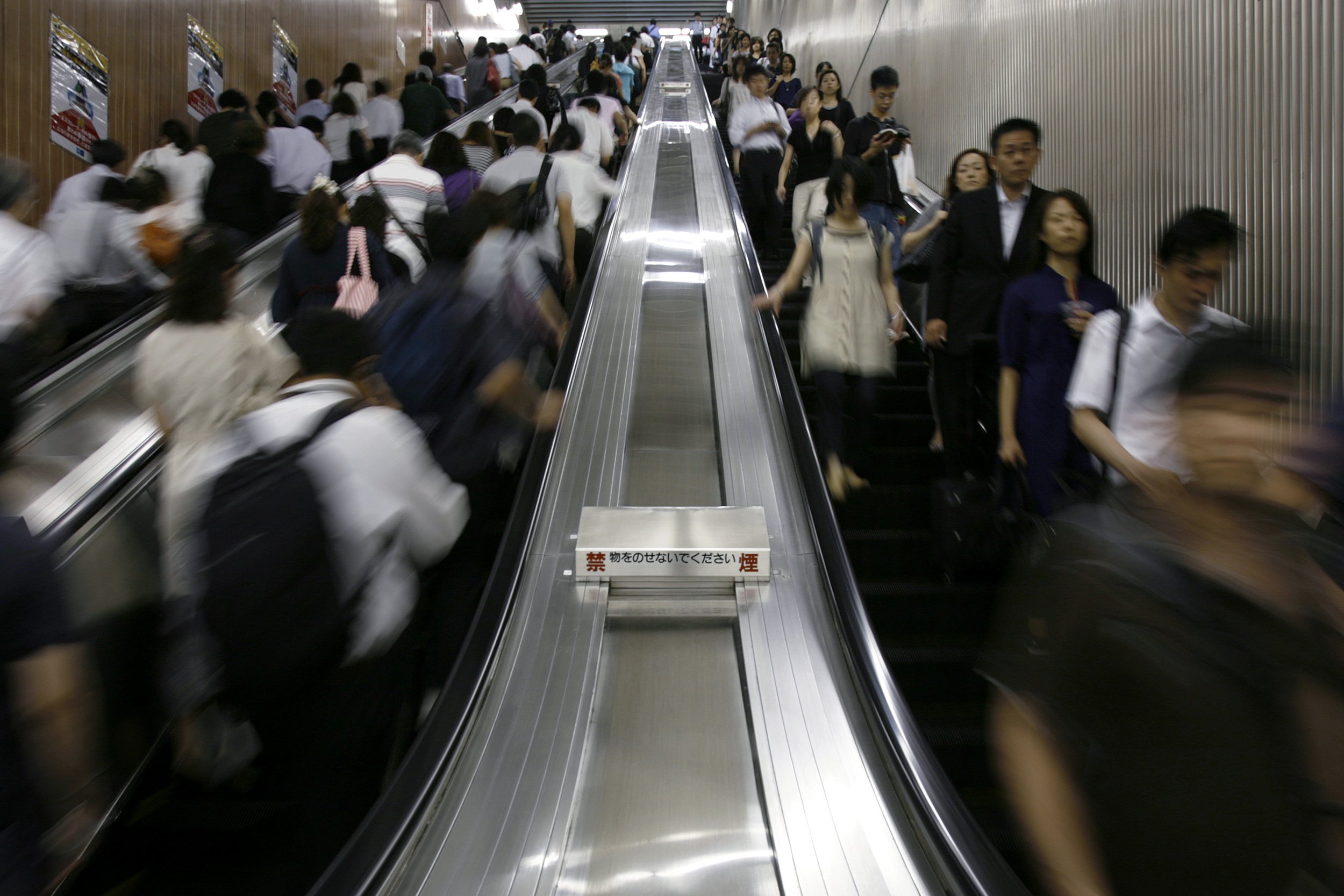
In an era when most people are buried in their smartphones on public transit, pregnant women can have a hard time snatching seats on crowded subway trains. Now, there's an app for that—at least for Tokyo riders.
The app connects pregnant women with nearby passengers who are willing to give up their seat. The app is being tested this week in Tokyo in hopes of overcoming two problems: subway-riders are generally looking at their phones and talking on public transit isn't as accepted in Japan, reported AFP.
"This may be particular to Japan but some people hesitate to speak to a person who may need a seat," said a spokesperson at Dai Nippon Printing, the company testing the service on a key subway line. The project is in conjunction with Tokyo Metro and the Line Corporation, a messaging app company.
Those registered for the app who have noted they are willing to offer their seat can match with pregnant women—who receive a map of the subway seats where people willing to give up their seats are located. The seat-matching is done without exchanging any personal information.
"Many people are also looking at the smartphone screens and do not realize quickly that someone in need is standing nearby," said the spokesperson. "We try to take advantage of the situation."
When the service will officially be rolled out is unclear, however, the companies hope the technology may be used to assist elderly and disabled people as well.
Other approaches on public transit that specifically target women have been implemented around the world—including women-only cars on metro trains in Japan, India, Brazil, Egypt, Iran and Mexico, reported the Huffington Post. Those initiatives are sometimes criticized—for instance, a 2014 Quartz essay slammed Delhi's women-only public transit car as "a step backward for women's safety in the long run" because it sends a message that "women need to be separated from men to be safe, and that Indian men have no self control."

New York City's public transportation system doesn't have women-only cars, but the Metropolitan Transportation Authority approaches these issues with signage—telling subway-riders to use common subway etiquette like offering your seat to pregnant women or people with disabilities. Earlier this year, the MTA launched a campaign to hand out "Baby on Board" buttons to passengers in order to help pregnant women secure subway seats, reported Fortune.
The issue of "manspreading" has also taken hold in New York—that's the behavior where a person, mostly men, take up more space than necessary on subway seats by spreading their legs. Back in 2014, the MTA tackled "manspreading" with an advertising campaign with signage such as "Courtesy Counts, Manners Make a Better Ride" and "Dude...Stop the Spread, Please: It's a Space Issue," previously reported by Newsweek. Just last month, though, it appeared that the signs to stop manspreading hadn't solved much. A man punched a woman in the face and busted her lip after she asked him to move over.
Uncommon Knowledge
Newsweek is committed to challenging conventional wisdom and finding connections in the search for common ground.
Newsweek is committed to challenging conventional wisdom and finding connections in the search for common ground.
About the writer
Sydney Pereira is a science writer, focusing on the environment and climate. You can reach her at s.pereira@newsweekgroup.com.
To read how Newsweek uses AI as a newsroom tool, Click here.








